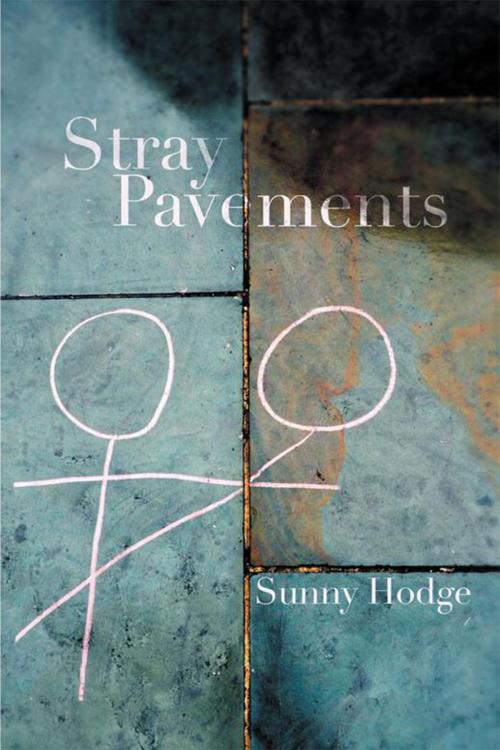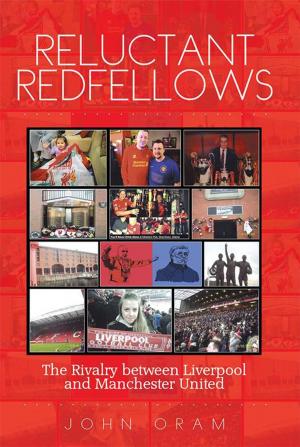| Author: | Sunny Hodge | ISBN: | 9781483627335 |
| Publisher: | Xlibris UK | Publication: | April 30, 2013 |
| Imprint: | Xlibris UK | Language: | English |
| Author: | Sunny Hodge |
| ISBN: | 9781483627335 |
| Publisher: | Xlibris UK |
| Publication: | April 30, 2013 |
| Imprint: | Xlibris UK |
| Language: | English |
Stray Pavements begins with a family and ends at a boy. Its a fabricated tale of growth and freedom in modern day society. The setting is London city, an uncertain environment for one married couple who have fled their exotic little island to seek a better life in Englands capital. We begin with Sister, mother of this makeshift family, whom at an early age had her dreams of becoming a professional athlete curbed, and was decisively thrown into the confines of housewifery along with the torment of an abusive husband. Time bides slowly, and long days of work and tending to her husband leave her morose. Soon her dysfunctional world is torn askew with the timely death of her first born, so she decides to escape, and whisks her only remaining child Didecan up in her arms to save him from a life she knew all too well. Her new life finds her back on the running track. With the help of an understanding and supportive coach she earns a solid reputation in her event, soon competing for her new nation in the Commonwealth games. Her running career thrives, as does her understanding of other cultures around her, and gracefully she matures to a woman and a mother that she can admire and respect. All the while with Didecan growing up, we start to see her world through his eyes and mood. His mothers remarriage takes the family to a new house in a leafy suburb, and leads Didecan onto the path of a structured education. Throughout the course of this fiction we are challenged with stray thoughts and manifestations of consciousness, they expel sporadically and without restraint, cutting the plot into segments of memory. Our closeness to Didecan varies, and develops in time as he matures. We follow him through differing depths of awareness, and at times we, the reader, become a part of his conscious mind. These blips of introversion, or realisation, if you wish, which leak into the narrative, are essential in understanding Didecans honest emotion. Mandatory visits to his biological father every weekend only seek to mar his opinions on a culture his parents left behind them, and in turn he proceeds to nurture a sense of animosity towards his father. The early responsibilities and trust he became burdened with at adolescence, have only differentiated him at school, and a sense of not fitting in spurs him onwards to challenge himself as an individual. Outside of his new found stability at school and home, he wanders the streets with a companion from school. The two steadily find themselves captivated by the art of rollerblading and the culture it breeds, brought about by a generation of children who roam concrete corridors. They walk a path riddled with crime and violence, and learn what it means to feel free from the whims of society. But these experiences age him, and we draw rapidly nearer to his opinion, as his awareness of the world grows. Rigorous schooling taints his aspirations for wealth and prosperity, for he seeks a greater sense of satisfaction within a city rife in falsified pleasure. His struggle draws within that narrow margin of separation between the strict confines of inner city strife and juvenile urgings for independence. Quickly, he learns his boundaries on the streets, a series of hard hitting altercations leaves him weary of the ruined path that lies ahead, so he turns his attention back to work and institution. At university he starts to feel even more of the misfit, he cant understand other students of his age, and couldnt fathom why they strived so arduously to fit in. He dwells on what it means to be an individual, and ponders his fitting in the world, realising that knowing what one definitely doesnt want to do is nowhere near as simple as realising what makes oneself content. So with the help of a close friend he sets a deadline for himself, thirty three years of age, and within this time frame finds himself compelled to reach contentedness, or hell simply end it. He enjoys his working part time at his res
Stray Pavements begins with a family and ends at a boy. Its a fabricated tale of growth and freedom in modern day society. The setting is London city, an uncertain environment for one married couple who have fled their exotic little island to seek a better life in Englands capital. We begin with Sister, mother of this makeshift family, whom at an early age had her dreams of becoming a professional athlete curbed, and was decisively thrown into the confines of housewifery along with the torment of an abusive husband. Time bides slowly, and long days of work and tending to her husband leave her morose. Soon her dysfunctional world is torn askew with the timely death of her first born, so she decides to escape, and whisks her only remaining child Didecan up in her arms to save him from a life she knew all too well. Her new life finds her back on the running track. With the help of an understanding and supportive coach she earns a solid reputation in her event, soon competing for her new nation in the Commonwealth games. Her running career thrives, as does her understanding of other cultures around her, and gracefully she matures to a woman and a mother that she can admire and respect. All the while with Didecan growing up, we start to see her world through his eyes and mood. His mothers remarriage takes the family to a new house in a leafy suburb, and leads Didecan onto the path of a structured education. Throughout the course of this fiction we are challenged with stray thoughts and manifestations of consciousness, they expel sporadically and without restraint, cutting the plot into segments of memory. Our closeness to Didecan varies, and develops in time as he matures. We follow him through differing depths of awareness, and at times we, the reader, become a part of his conscious mind. These blips of introversion, or realisation, if you wish, which leak into the narrative, are essential in understanding Didecans honest emotion. Mandatory visits to his biological father every weekend only seek to mar his opinions on a culture his parents left behind them, and in turn he proceeds to nurture a sense of animosity towards his father. The early responsibilities and trust he became burdened with at adolescence, have only differentiated him at school, and a sense of not fitting in spurs him onwards to challenge himself as an individual. Outside of his new found stability at school and home, he wanders the streets with a companion from school. The two steadily find themselves captivated by the art of rollerblading and the culture it breeds, brought about by a generation of children who roam concrete corridors. They walk a path riddled with crime and violence, and learn what it means to feel free from the whims of society. But these experiences age him, and we draw rapidly nearer to his opinion, as his awareness of the world grows. Rigorous schooling taints his aspirations for wealth and prosperity, for he seeks a greater sense of satisfaction within a city rife in falsified pleasure. His struggle draws within that narrow margin of separation between the strict confines of inner city strife and juvenile urgings for independence. Quickly, he learns his boundaries on the streets, a series of hard hitting altercations leaves him weary of the ruined path that lies ahead, so he turns his attention back to work and institution. At university he starts to feel even more of the misfit, he cant understand other students of his age, and couldnt fathom why they strived so arduously to fit in. He dwells on what it means to be an individual, and ponders his fitting in the world, realising that knowing what one definitely doesnt want to do is nowhere near as simple as realising what makes oneself content. So with the help of a close friend he sets a deadline for himself, thirty three years of age, and within this time frame finds himself compelled to reach contentedness, or hell simply end it. He enjoys his working part time at his res















